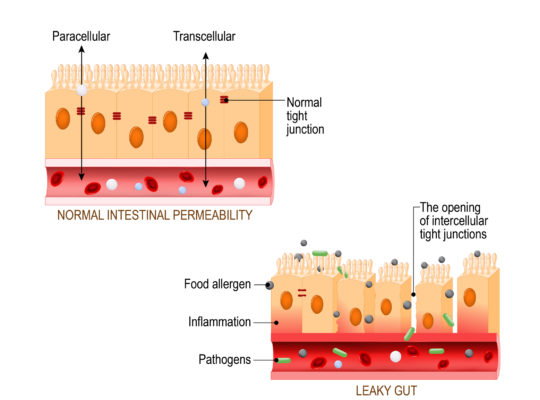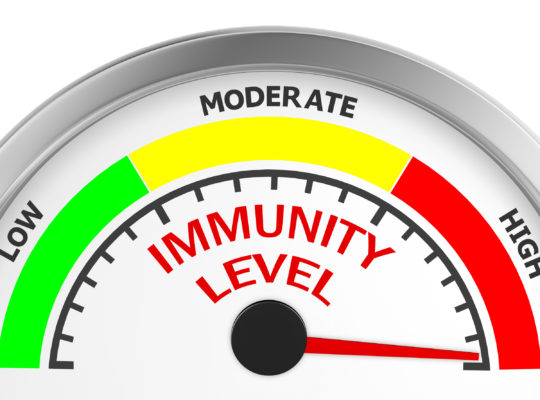What is gluten?
Gluten is a protein found in many grains such as wheat, semolina, spelt, kamut, rye and barley. Gluten is what gives bread its airy and fluffy texture and dough its sticky texture.
Because most of our historical association with gluten “sensitivity” is celiac disease (with its typical severe diarrhea and malabsorption symptoms), many people mistakenly have the impression that if gluten is “an issue,” it will result in severe GI symptoms. Certainly, gluten sensitivity (non-celiac gluten sensitivity) can be a true root cause for symptoms such as chronic acid reflux or constipation. But gluten “sensitivity” (similar to allergies) is an immune system reaction. Yes, it usually begins in the gut (because that is where more than 2/3 of our immune system is housed). But the inflammatory chemicals generated by an immune system reaction to a food encountered in the gut can quickly spread throughout the body and cause symptoms far from the gut (e.g., the brain, joints, muscles, heart). It is estimated that 1 in 30 people have gluten sensitivity.
In my functional medicine training, I learned that GI symptoms of gluten sensitivity are much less common and instead symptoms of inflammation such as arthritis, depression, brain fog or attention deficit, eczema, and headache are classic. In particular, if you struggle with chronic mild depression, mental malaise, and/or brain fog (“I feel like I’m thinking under a heavy, wet blanket”)—think of your gluten consumption. Gluten is in a lot of non-bread products (like soy sauce and salad dressings) so this article can help you identify foods that may contain this ingredient. Also, there are phone apps that allow you to scan products to determine if they contain gluten.
My gluten sensitivity diagnosis
I didn’t have any noticeable gut issues when I decided to get a stool test (specific functional test not the kind you get through your PCP). I had regular normal bowel movements, no pain, and no bloating. However, I stopped sleeping! I mean no winks of sleep all night. That was the straw that broke the camel’s back.
My stool test results showed a high number of antigliadin-IgA antibodies (an immune response to gluten). What this means is that my body was getting inflamed at the presence of gluten. I was shocked because I didn’t eat a lot of gluten—a couple pieces of bread a week and a burrito shell a couple times a week. However, in the past I do remember experiencing brain fog sometimes after eating a piece of bread, but not consistently and I was told years ago that I had a thyroid issue so I dismissed this critical and common symptom. In fact, in retrospect I’ve had on and off mental malaise for years! Probably as far back as I can remember.
I have been off gluten for two weeks which wasn’t that difficult because I didn’t consume a lot of it. I made some easy substitutions in my diet. I had my burrito in a bowl instead of a whole wheat shell. I had sunflower seed butter with sliced apples instead with sprouted bread.
Gluten-free: How do I feel? Have I noticed any changes?
It’s only been a couple weeks, but one thing that I’ve noticed is that I’m sleeping better and I’m thinking more clearly with no dips in energy during the day. However, my stool tests did pick up on some microbial dysbiosis (imbalance in my gut flora) and a few bad bacteria (more on these results in a future post) so it is hard to know if the way I currently feel is associated with being gluten-free or the fact that I’m taking an anti-microbial that’s killing the bad gut bacteria.
So, should you avoid gluten, even if you aren’t experiencing symptoms? The research says yes.
Gluten has been found to compromise the gut lining, creating “leaky gut” or intestinal permeability, even in those who do not have celiac disease.
The lining of the gut is supposed to be strong and tight, keeping food, waste, and microbes inside the digestive tract. However, gluten can cause the release of an inflammatory protein called zonulin, which opens up the junctions in the lining of the gut and causes gaps, allowing particles to leak into the bloodstream (where they don’t belong) and creating an immune response. This sets the stage for systemic inflammation.
That’s why gluten is no longer part of my diet. Some folks have asked me—how can you give up bread? First, there are gluten free breads and I’m exploring some seed-rich recipes at the moment. Secondly, why would you eat something that inflames your body? So, not a difficult decision for me. I’ll make adjustments and find something that I like even better in place of bread. I adapt pretty easily when it comes to my health.
Interested in learning more about the effects of gluten on the body? Check out Dr. Mark Hyman’s podcast, The Doctor’s Farmacy, where during episode #47 he discusses the ties between diet and brain health especially as it relates to gluten. His guest on this Podcast is Dr. David Perlmutter who’s best known for his #1 New York Times bestseller Grain Brain, The Surprising Truth About Wheat, Carbs and Sugar.
If you suspect gluten might be an issue for you, then you should eliminate it from your diet for at least a full month (100%, cold-turkey elimination to be valid). In many cases, this elimination takes care of symptoms in an obvious way. If the benefit is unclear, however, a reintroduction challenge can test for symptoms resurgence. After the full 4 (preferably 6) weeks of elimination, you can add back a full serving of gluten-containing food (e.g. a slice of bread) twice daily for three days in a row. It’s important to make the reintroduction a strong 3-day challenge vs. a slow, bite-by-bite, gradual return to the food (which allows symptoms to slowly creep back in over time without a clear culprit).







